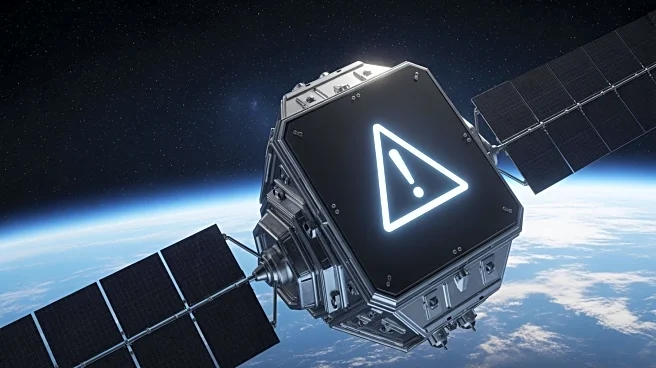What's Happening?
In a significant development for space traffic management, the China National Space Agency (CNSA) has reached out to NASA to warn of a potential collision between satellites. This marks the first instance
of such communication between the two agencies, highlighting a shift towards more open dialogue. Historically, the US and China have had strained relations in space, with the US banning China from the International Space Station in 2011 and expressing concerns over China's transparency regarding rocket reentries. The CNSA's proactive communication is seen as a positive step, as noted by Alvin Drew, NASA's Director for Space Sustainability, during a session at the International Astronautical Congress in Sydney.
Why It's Important?
The communication between CNSA and NASA is crucial as it represents a potential thawing in US-China space relations, which have been limited by the Wolf Amendment since 2011 due to national security concerns. The amendment restricts NASA's ability to engage with China on space matters. With the increasing number of satellites in orbit, particularly from SpaceX's Starlink and China's Guowang and Thousand Sails megaconstellations, collaboration is essential to prevent collisions. Such incidents could lead to Kessler Syndrome, where debris from a collision causes further collisions, creating a hazardous environment in space.
What's Next?
The CNSA's outreach could pave the way for more collaborative efforts in space traffic management, although the Wolf Amendment remains a significant barrier to deeper cooperation. As satellite numbers grow, the need for international protocols and communication channels becomes more pressing. The US, with its extensive satellite operations, may need to consider revisiting policies that limit engagement with China to ensure global space safety.
Beyond the Headlines
The CNSA's action may signal China's intent to participate more actively in global space governance, potentially influencing future policy discussions. This could lead to ethical and legal considerations regarding space debris management and international cooperation in space exploration.











